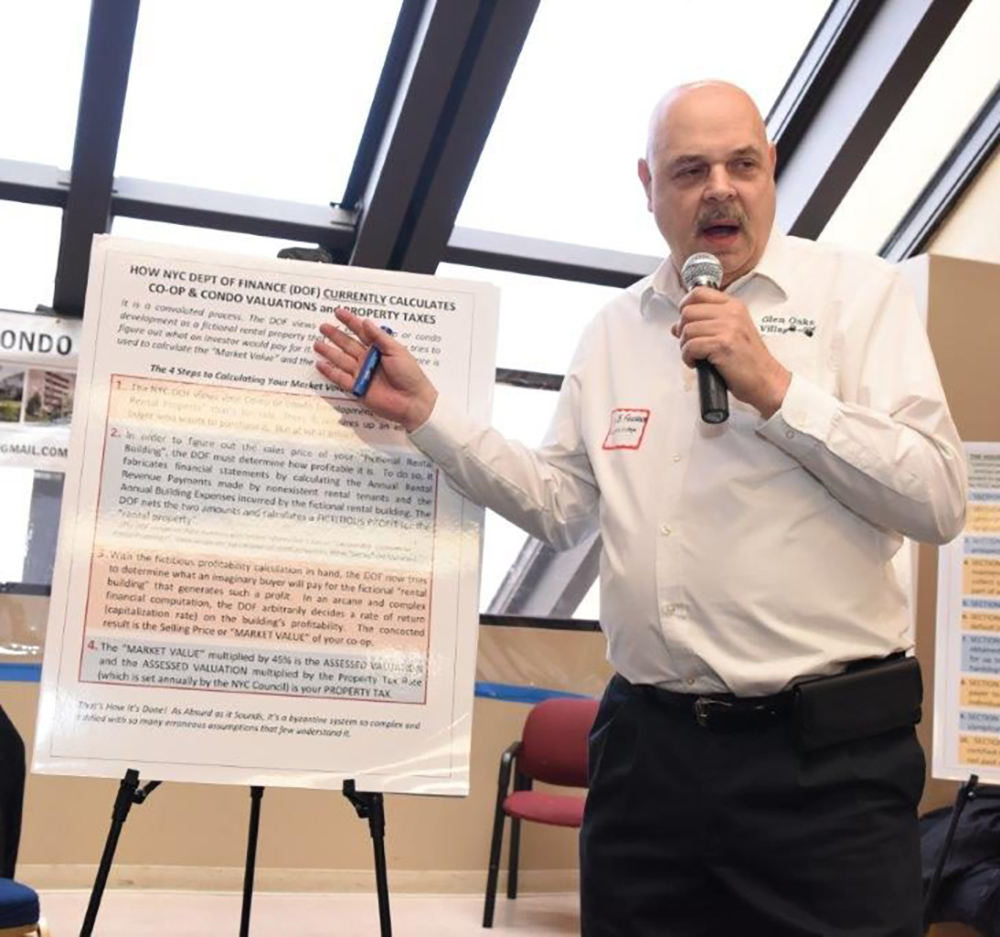|
Getting your Trinity Audio player ready...
|
By: Jared Evan
A new clean-energy law will impact citizens of New York City, driving up rent and maintenance fees for many middle-class New Yorkers and creating a mass exodus of these hard working residents.
“Among the disastrous effects of the folly called Local Law 97, which requires most apartment buildings to change their heating systems to reduce greenhouse gas emissions, is that electric heat – the city’s preference – doesn’t work as well as boilers that burn fossil fuels”, NY Post writer Steve Cuozzo wrote in a recent op-ed
Bob Friedrich, board president of Glen Oaks Village in northeastern Queens, the city’s largest garden-apartment complex, spoke to the media and warns that heat pumps for electrical systems “are only efficient for temperatures in the 30s and 40s. Below that they become less efficient to heat a home.”
In other words, he said, “Get out the heavy coat and gloves.”
The law, according to Cuozzo, is to take effect at the end of the year can only drive more middle- and working-class homeowners owners out of town. Friedrich calls it “insane.”
Residents of Glen Oaks Village and the Bay Terrace Cooperative, both in Queens, face staggering future costs for “environmental” overhauls.
The radical, extremist law spells financial ruin for many of the city’s 3,700 co-op and condo buildings, which are home to 800,000 apartments. It requires buildings with more than 25,000 square feet to either switch to electric heat or replace their boilers so as to cut down on greenhouse gas emissions.
Warren Schreiber, board president of Bay Terrace for twenty-five years, said, “I’ve never had an issue that actually kept me awake at night.”
At the 200-unit Bay Terrace complex in Bayside, Queens, Schreiber said, “We don’t know how we’re going to pay for this.”
He can’t even figure out what steps would put the complex in compliance because the rules are too dense to follow according to his interview with The New York Post.
To go all-electric would cost Bay Terrace $3 million for heat pumps alone, he said, in addition to myriad other expenses needed for conversion.
Shareholders would pay huge assessments or a 30 percent hike in monthly maintenance. Schreiber noted, “We don’t have million-dollar luxury units like in Manhattan. We are a middle-income and working-class co-op. We have lots of teachers, civil servants, single-parent households, and senior citizens”.
At sprawling Glen Oaks, home to over 10,000 residents in 134 buildings. “We have 96 boilers” that would all have to be replaced, Friedrich said. “We’d have to spend $24.5 million for new boilers we don’t need.
“Even if we put in the most efficient boilers,” he told the New York Post, the fines would be a little less but “would not go away” entirely because emission-reduction thresholds are impossible to meet without switching to an electric system.
“This has nothing to do with the environment, this an effort to drive out any remaining normal New Yorkers, who are not on welfare or billionaires, this an affront to lifelong New Yorkers, teachers, bus drivers, sales people, independent contractors, small business owners, nurses, & retired people, “ a retired New Yorker told the TJV as he expressed his opinion with palpable emotion etched on his face.




